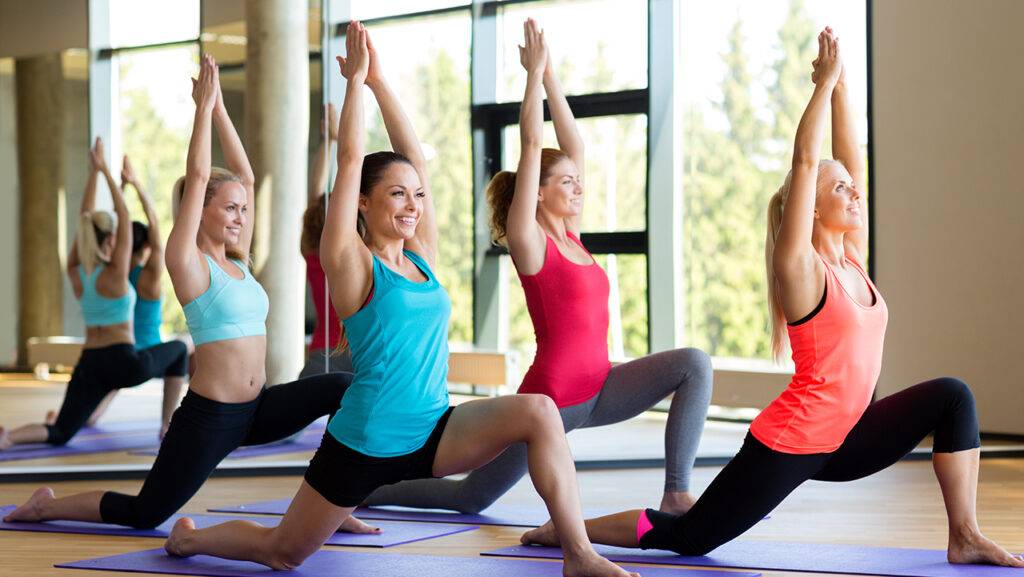How to Use Yoga to Combat Depression

Depression affects people of all ages and backgrounds, and can negatively impact your mental and physical well-being. Fortunately, there are natural and holistic ways to combat depression, and yoga is one of the best ones. You might be wondering – how can yoga help me with depression? Isn’t it just exercise?
Yes, but it is more than that too. Yoga is a practice that brings together the body, mind, and spirit, and has been shown to be effective in reducing symptoms of depression in clinical trials and scientific studies. Join us as we explore how yoga can help combat depression and provide tips on how to incorporate yoga into your daily routine.
Stress, depression, and yoga
Stress is a major contributor to depression, and one of the key predictors of whether someone gets or stays depressed. Yoga has been proven to reduce stress by calming the mind and body. Yoga’s focus on breathing and mindfulness has been shown to activate the parasympathetic nervous system, which helps to relax the body and reduce feelings of anxiety and stress. Practicing yoga regularly can help to reduce the stress hormone cortisol, leading to improved mental health.
Yoga boosts serotonin levels
Serotonin is a neurotransmitter that is responsible for regulating mood, and consistent low levels of serotonin are linked to depression. Studies have shown that practicing yoga can help to increase serotonin levels in the brain, which can lead to improved mood and, in turn, a reduction in symptoms of depression. This is how yoga actually affects your brain chemistry.
Yoga improves brain function
Depression is associated with dysfunction in certain areas of the brain, including the hippocampus and prefrontal cortex. Research has shown that practicing yoga can increase the size of the hippocampus, leading to improved memory and cognitive function. Yoga has also been shown to regulate activity in the prefrontal cortex, which is responsible for mood regulation and decision making.
Yoga increases mindfulness
Mindfulness, which involves being present in the moment without judgment, is a key component of yoga. Practicing mindfulness has been shown to be effective in reducing symptoms of depression. By practicing yoga, you are training your mind to stay focused on the present moment, which can help to reduce feelings of sadness and worry.

How to incorporate yoga into your daily routine
If you are new to yoga, it can be overwhelming to know where to start. Here are some tips for incorporating yoga into your daily routine:
Start with a beginner class: There are many different types of yoga, and some can be more challenging than others. Starting with a beginner class will allow you to learn the basics of yoga and give you a solid foundation to build upon.
Practice at home: If you are short on time or don’t have access to a yoga studio, practicing at home can be a great option. There are many online yoga classes that you can follow along with.
Set a schedule: Make yoga a regular part of your routine by scheduling it into your day. Whether it’s first thing in the morning or before bed, find a time that works for you and stick to it.
Focus on your breath: The breath is a key component of yoga. As you practice, focus on your breath and try to deepen your inhales and exhales. This can help to calm the mind and reduce stress.
Conclusion:
Depression is a serious condition, but there are natural and effective ways to combat it that don’t require medication or expensive therapy. Yoga is a practice that can improve mental and physical well-being, and has been shown to be effective in reducing symptoms of depression. By incorporating yoga into your daily routine, you can reduce stress, boost serotonin levels, improve brain function, and practice mindfulness. Whether you are new to yoga or a seasoned practitioner, there are many options for incorporating yoga into your life. Give it a try and see how it can benefit you.
Share via:





Leave a Comment